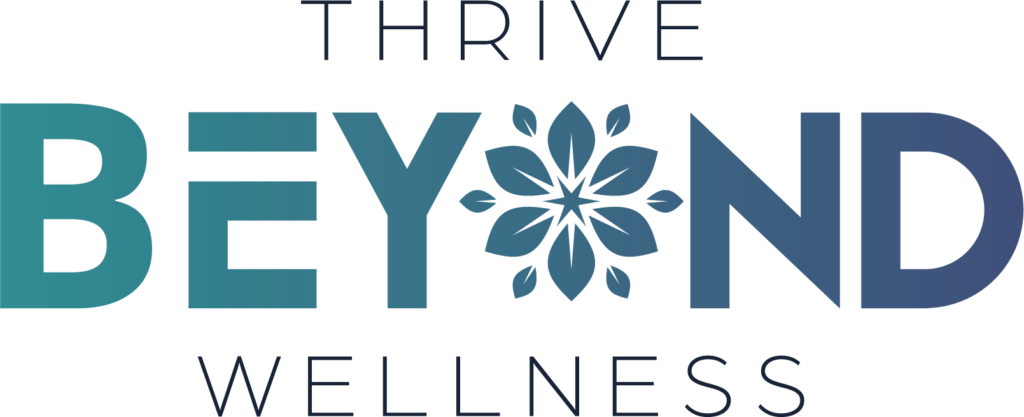
Fans of the hit TV show This is Us will remember a scene from Season One when Kate and her boyfriend Toby start a diet together. The ultimate couple bonding experience, right? Except that when the monthly weigh-in takes place, Kate has lost 1 ½ pounds after a month of strict dieting, while Toby has dropped a full 8 pounds. Not surprisingly, Kate falls off the diet immediately (as does Toby, for the record), and the relationship is put on pause for several emotionally distraught episodes.
As this episode underscored to millions of viewers, dieting is often an emotional, frustrating rollercoaster that takes over lives, puts stress on relationships, and ends up potentially damaging a person’s physical and emotional well-being.
And yet our society continues to search for the ultimate diet plan, the one that works for everyone, is easy to follow, and will deliver results quickly and measurably. So, it is not surprising that DNA-based diets are back in the headlines, and, in some cases, promising dramatic results and long-term benefits that will work where other diet models fail.
But can DNA-based diets really deliver on their promise or are they simply the next fad diet?
The first thing to understand is that DNA-based diets are not new. Understanding that interactions between nutrition and genetics could be critical factors in influencing height and weight, for example, this was established as early as 1902 when scientists began to think about what we all think about: do my genes make me put on weight more easily than other people? How much does changing my diet really help my health if my genes are already pre-programmed to be unhealthy in some way?
Science supports this claim, noting that each of us has a molecular “fingerprint” that is unique and dynamic, influenced by several factors including diet (often considered part of the environment), social and cultural factors, and even geography. Therefore, the impact of nutrition could vary among individuals and specific population communities based on any or all these variables.
In other words, what you have always thought might well be true: a woman in New York City might not respond to a carb-loaded Italian dinner the same way a woman in Florida will or a woman in Kansas City. Not only are their genetic makeups different, so are the climates they live in and the social networks they interact with every day.
The DNA diet has proven more directly useful in changing how each of us can approach our questions about diet and nutrition, or what I like to say the questions about “what, when, where, with whom, and how much to eat.”
So, What Does History Tell Us?
Almost exactly a century after the initial studies into the relationship between genes and diet occurred, the completion of the Human Genome Project in 2003 re-energized interest in the DNA diet, or as it is known in the scientific worlds, nutrigenomics. Since then, there has been steady and increasing interest in the relationship between diet and dietary constituents (how and what you eat) and how these variables impact individual health.
What is nutrigenomics? It is the study of the effects of food on how genes are triggered or not triggered within the body as well as how genes impact how individuals process food and nutrients. More broadly, nutrigenomics focuses on understanding how genes, diet, and environment interact to affect human health.
Researchers established some early facts from these studies. For instance, we now know that the baseline estimation is that the average human diet contains about 20,000 compounds, of which nearly 50 are essential for life. Studies have consistently demonstrated, as well, that regular intake of fruits and vegetables does improve general health quality and reduces the impact of chronic lifestyle-related diseases. So, telling our kids to eat their fruits and vegetables does have scientific backing. Most of us can list many of the essential nutrients that have nutrigenomic research has identified:
- Fatty acids like omega-3 (fish and walnuts) and omega-6 (fish and some whole grains)
- Proteins
- Amino acids
- Complex carbohydrates
- Vitamins from A through K
- Electrolytes and trace elements like calcium, iodine, iron, potassium, and zinc.
Other studies have confirmed that some non-essential dietary components, like the phytochemicals found in many plant-based products, help keep the body healthy, but many non-essentials are generally detrimental to health and well-being if taken in excess, becomes unbalanced, or left to slide into deficiency.
Is it One Diet for All?
As we all know, most approaches to diet behavior take a one-size-fits-all approach, familiar to everyone as the servings-per-day model or ounces-per-day model. There are also some more holistic but only relatively less prescriptive approaches similar to those found in the Dietary Guidelines for Americans (2015-2020). The Dietary Guidelines, for instance, provide healthy eating patterns for twelve different calorie levels (from 1000 to 3200) as well as for “two additional USDA food patterns: Healthy Mediterranean-Style Eating Pattern and Healthy Vegetarian Eating Pattern. As John Mathers concludes in the Proceedings of the Nutrition Society (2017): “Such approaches can be effective but often result in only modest improvements in food intake.”
In contrast, the DNA diet allows for diet behaviors to be addressed through a personalized nutrition (PN) approach that “is based on the hypothesis that knowledge of key characteristics of those to whom the intervention is being delivered will help in making the intervention more relevant and may increase motivation to make, and to sustain, the desired dietary change.”
However, what is common to all these studies is the recognition that we all respond to what we eat differently. As Monica Reinagel explains in Scientific American: “Some people do really well on a higher fat diet. Others develop high triglycerides or cholesterol on the same diet. Some people lose more weight when they reduce carbs. Others lose more weight when they increase complex carbs and reduce fat.”
Put simply, studies show us what most people already know: no diet can promise a one-size-fits-all package, and any diet that tries to make that promise is unlikely to provide long-term relief from weight management issues.
But as Reinagel and others explain, genetic variables can potentially help weight management by providing valuable insight into some of the invisible factors that science has proven to be linked to weight gain. Knowing more about the perilipin (PLIN1) gene, for instance, can help set guidelines for adjusting daily carbohydrate intake, since that specific gene is specifically associated with variance in body-weight regulation. Similarly, knowing more about an individual’s caffeine metabolism can help adjust sleep hygiene, which has also been linked to weight management.
What a DNA-based diet can do, though, is give us a much clearer, more detailed picture of what genetic variables might be influencing weight gain and loss. Used properly, this knowledge can move us away from the one-size-fits-all model toward a more individualized, evidence-based diet plan that takes genetics into account as well as the social and emotional aspects of weight management.
So, Does It Work for Us?
So, going back to the story of Kate and Toby that opened this blog, you can see how it makes perfect sense that two people, both on the same diet, could lose weight at very different rates. Imagine if Kate and Toby had known this. Instead of trying to negotiate the disappointment and emotional turmoil, they could have approached their joint diet differently, with each of them on individualized diet plans that would optimize weight loss by recognizing their genetic differences and tailoring inputs to address individual needs and triggers more effectively.
There is little doubt that the DNA diet can be considered a radical rethinking about how we approach our diets, the foods we love, and our health. As I have discussed here, early results are encouraging, showing that a DNA diet can help change behavior, lose weight, and improve nutritional and overall health. And if the explosion of personal weight and nutrition management software programs onto the market in the past decade tells us anything, it is that the DNA diet has caught the public’s attention.
But it is important to remember that nutrigenomics is still an emerging science, which means there remain more questions than answers at the moment.
Personalized diets based primarily on genetic profiles are just the beginning. Advances in microbiome research, for example, suggest that a combination of genetic and microbial interactions might be an even more accurate predictor of dietary requirements and interactions and, by extension, add a new layer of effectiveness to PN strategies. Additionally, as genetic research into such diseases as obesity and diabetes advances, perhaps even isolating a gene or cluster of genes with a strong correlation with a particular disease or health issue, PN will become more and more, well, personalized. Along with the now-familiar Mediterranean-Style Eating Pattern, we might well have access to diet plans specifically tailored to help us lose weight, deal more effectively with our diabetes, or support the drugs being used to fight our cancer.
The DNA diet is not a fad. It is a science-based approach to nutrition and diet behavior that will continue to be refined over the coming years to become more accurate, secure, and accessible. It’s up to us to decide which side of history we want to be on to truly turn the tides of fad diets into a sustainable lifestyle leverage of our DNA blueprint.
To work with me, schedule your discovery call TODAY!
Dr LaReesa
Women’s Hormone Expert
Coach/Physician/Speaker







